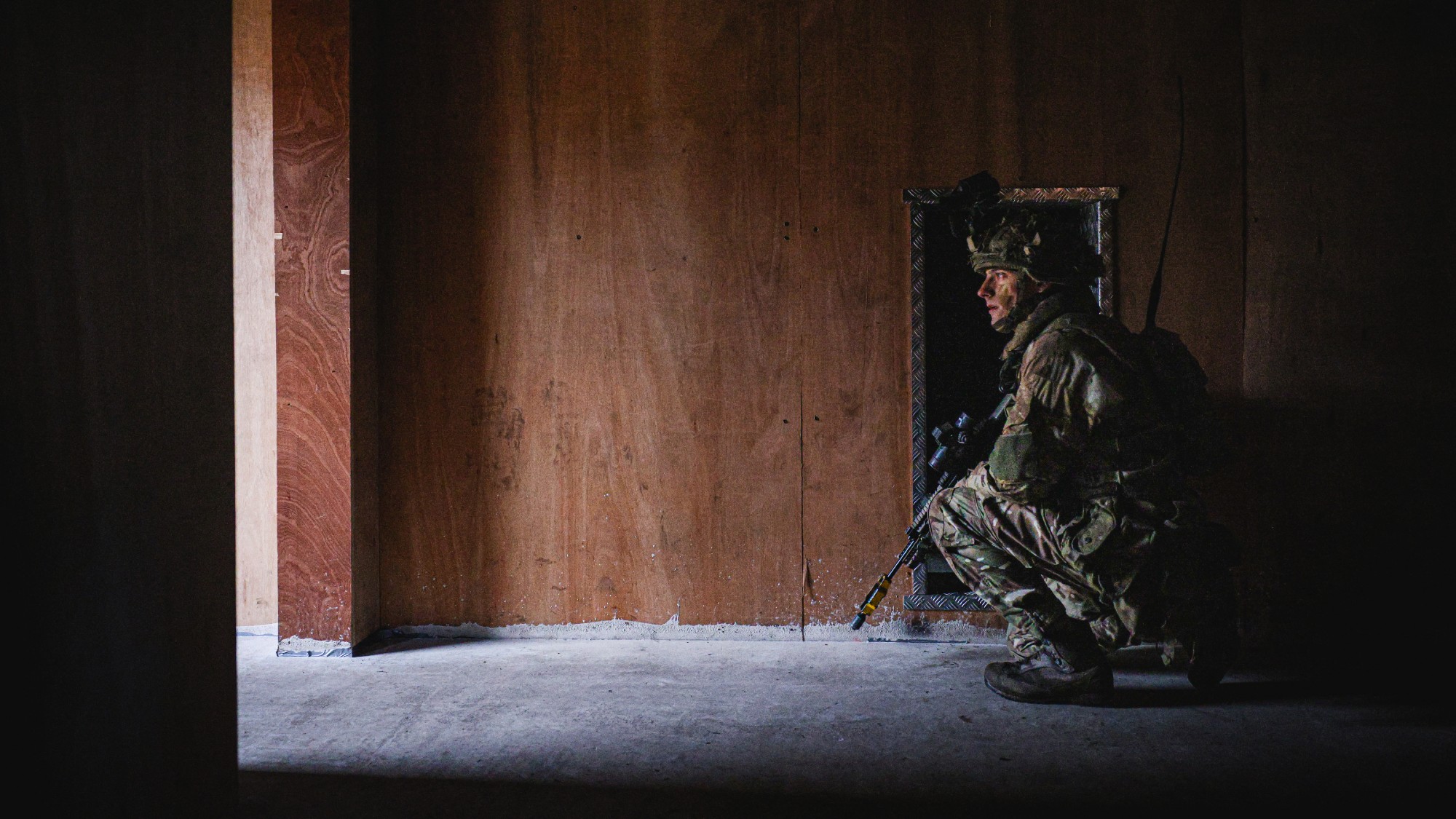Would Gen Z fight for 'racist' Britain?
New study suggests low levels of pride and 'declines in confidence in institutions' among younger generation

A free daily email with the biggest news stories of the day – and the best features from TheWeek.com
You are now subscribed
Your newsletter sign-up was successful
"If we aren't prepared to fight for our freedom and way of life as we have always done, then we will become prey in a world of predators."
That was the response of Patrick Sanders, former head of the British Army, to a "landmark" survey by The Times suggesting that only 11% of Generation Z would fight for Britain, compared with 22% of a similarly aged cohort 20 years ago.
Almost half of those aged 18-27 (48%) said Britain was a racist country, according to research carried out in partnership with YouGov and opinion consultancy Public First, compared with 34% of people aged 18-30 in the same study in 2004. Only 41% said they were proud to be British, down from 80%. The findings suggest "marked declines in confidence in institutions and belief in the UK as a nation".
The Week
Escape your echo chamber. Get the facts behind the news, plus analysis from multiple perspectives.

Sign up for The Week's Free Newsletters
From our morning news briefing to a weekly Good News Newsletter, get the best of The Week delivered directly to your inbox.
From our morning news briefing to a weekly Good News Newsletter, get the best of The Week delivered directly to your inbox.
What did the commentators say?
"Twenty years ago, young Britons entered adulthood during an era of economic stability, optimism and expanding global opportunities," said the Daily Mail.
"In contrast, Gen Z has grown up amid political upheaval, rising living costs, and concerns over inequality – leading many to feel disconnected from their country's past and uncertain about its future."
But their unwillingness to defend it is "a wake-up call we can't afford to ignore", Kemi Badenoch wrote in The Times. As for their belief that Britain is racist, "this is what happens when we let divisive narratives run wild without setting the record straight".
But the attitudes could also be a reflection of racial progress, said Sunder Katwala, director of the British Future think tank. Gen Z may seem more "pessimistic" because they have "grown up in a much more multicultural society", he told the paper. They are therefore "much less forgiving of what they see as the remaining racial injustices".
A free daily email with the biggest news stories of the day – and the best features from TheWeek.com
The UK's attorney general (aged 56) has also described "almost every element" of the British Empire as racist, said The Telegraph. Speaking on a podcast, Lord Hermer said it had enforced a "racial superiority that allows you to treat entire populations like school children".
Enough "handwringing about the effete and decadent younger generation", too busy on TikTok to "defend their land", said Niall Gooch in The Spectator. Why should they defend a country that has failed them? Consider "exorbitant" housing costs, a "punishing" tax burden, an ailing NHS, and "needlessly enormous" energy bills. Plus more than 17% of today's UK residents were born overseas – something that is "bound to undermine patriotic feeling".
"People aren't willing to die for what they don't love, and we are failing to give the rising generation reasons to love this country."
What next?
Generation Z has been "lucky enough to be able to take peace and security for granted", said General Sanders, and sees "no sense of threat or peril to this country from what is happening in Russia and the Middle East".
But if war were to break out, the country could depend on them. "I have faith in this generation – the soldiers, sailors and aviators I served with from Gen Z are as tough, brave and committed as any," he told The Times. "Their civilian friends will be no different when the chips are down."
Harriet Marsden is a senior staff writer and podcast panellist for The Week, covering world news and writing the weekly Global Digest newsletter. Before joining the site in 2023, she was a freelance journalist for seven years, working for The Guardian, The Times and The Independent among others, and regularly appearing on radio shows. In 2021, she was awarded the “journalist-at-large” fellowship by the Local Trust charity, and spent a year travelling independently to some of England’s most deprived areas to write about community activism. She has a master’s in international journalism from City University, and has also worked in Bolivia, Colombia and Spain.
-
 What are the best investments for beginners?
What are the best investments for beginners?The Explainer Stocks and ETFs and bonds, oh my
-
 What to know before filing your own taxes for the first time
What to know before filing your own taxes for the first timethe explainer Tackle this financial milestone with confidence
-
 The biggest box office flops of the 21st century
The biggest box office flops of the 21st centuryin depth Unnecessary remakes and turgid, expensive CGI-fests highlight this list of these most notorious box-office losers
-
 Munich Security Conference: a showdown between Europe and Trump?
Munich Security Conference: a showdown between Europe and Trump?Today’s Big Question Report suggests European leaders believe they can no longer rely on the US for military support – but decoupling is easier said than done
-
 Taiwan eyes Iron Dome-like defence against China
Taiwan eyes Iron Dome-like defence against ChinaUnder the Radar President announces historic increase in defence spending as Chinese aggression towards autonomous island escalates
-
 Is conscription the answer to Europe’s security woes?
Is conscription the answer to Europe’s security woes?Today's Big Question How best to boost troop numbers to deal with Russian threat is ‘prompting fierce and soul-searching debates’
-
 The mission to demine Ukraine
The mission to demine UkraineThe Explainer An estimated quarter of the nation – an area the size of England – is contaminated with landmines and unexploded shells from the war
-
 How will the MoD's new cyber command unit work?
How will the MoD's new cyber command unit work?Today's Big Question Defence secretary outlines plans to combat 'intensifying' threat of cyberattacks from hostile states such as Russia
-
 What are the different types of nuclear weapons?
What are the different types of nuclear weapons?The Explainer Speculation mounts that post-war taboo on nuclear weapons could soon be shattered by use of 'battlefield' missiles
-
 The state of Britain's Armed Forces
The state of Britain's Armed ForcesThe Explainer Geopolitical unrest and the unreliability of the Trump administration have led to a frantic re-evaluation of the UK's military capabilities
-
 Is the 'coalition of the willing' going to work?
Is the 'coalition of the willing' going to work?Today's Big Question PM's proposal for UK/French-led peacekeeping force in Ukraine provokes 'hostility' in Moscow and 'derision' in Washington